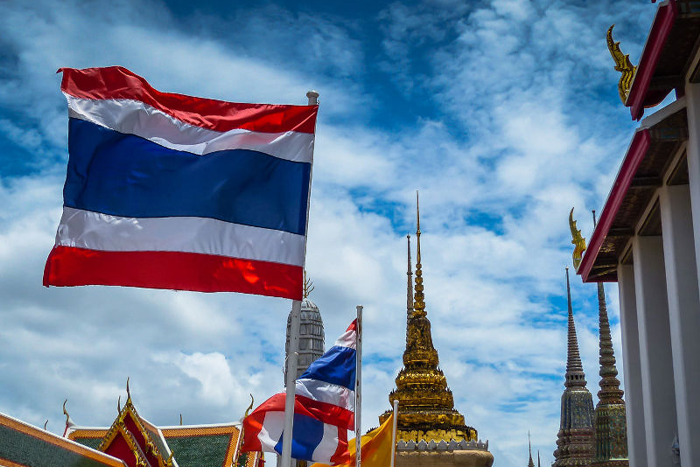Chairman’s Note
Private and Confidential
For SIIA Corporate Members and Advisors
December 2024
Prabowo’s Policy Challenges [2]
A number of you have asked my views about the new Prabowo Subianto administration in Indonesia. I am pleased to briefly share some observations with you as our valued corporate member and friend. The political landscape is highly dynamic, with vested interests from different stakeholders influencing policies. My points below draw from a recent visit to Jakarta in November and closed-door meetings with Minister for Investment and Downstreaming Rosan Roselani and with Indonesian experts. The SIIA will continue to engage with the Prabowo administration and other key players, and I kindly request that you keep these views confidential.
1. Ambitious Goals and Reform: Prabowo’s goal to raise growth to 8 per cent is ambitious. The current 5 per cent rate relies largely on domestic consumption and resources, with only a modest contribution of FDI to GDP due to low capital output ratio. To raise the rate of growth will take not only more FDI but, even more critically, reform to cut red tape and corruption and streamline governance. The declared eight priorities or “Asta Cita” also will require overhauling sectors such as defense, food and energy, as well as to develop capabilities especially for downstream industries.
2. Cabinet Composition and Stability: Prabowo has announced a very large cabinet, reflecting his “big-tent” coalition. Within this, however, not all are equal. Observers discern different clusters (1) those closest to the President, mainly from military, taking key positions to help exercise more centralised control over strategic priorities; (2) nominees to reflect the electoral partnership with preceding President Jokowi who aspires to be a continuing pole of power; (3) appointments of campaign financiers or their proxies; and (4) well-known names like Sri Mulyani as Finance Minister to reassure investors. The degree of influence of Prabowo family members also remains to be seen. With different groups as well as changes in wider political dynamics, we can expect cabinet shuffles.
3. Centralising Power: While the Cabinet and coalition are large and diverse, other plans point to efforts to centralise power and finance. One is to separate the tax agency from the Finance Ministry. The other is to create the Danantara superholding company from key and profitable state-owned-enterprises. Many also expect different councils to be created to push key initiatives and that these might have a bigger role than ministries. Already some critics evoke comparisons to Suharto-era centralisation and raise concerns about reduced transparency.
4. Jokowi Alliance: The dynamics between Prabowo and Jokowi remains to be watched, with the former’s wish to centralise power and the latter’s aim to remain a key decision maker. This is no assumption that the partnership is permanent. One focus will be the Golkar party, which is currently chaired by Bahil Lahadalia with Jokowi’s support. Another will be the activities and roles undertaken by Vice-President Gibran, Jokowi’s son.
5. Coalition Performance and Regional Elections: The recent regional elections show the relative strengths of Prabowo and Jokowi, as well as of the PDI-P which remains outside Prabowo’s cabinet at present. In key provinces in Java, Jokowi-backed candidates performed almost as well as Prabowo’s. The PDI-P capture of the gubernatorial position of Jakarta is also significant and may signal that it will be a force in law-making to force compromises from Prabowo.
6. Investment Priority: The creation of downstream industries is a priority for investment, focusing on value-added production and job creation. This targets specific commodities such as nickel and palm oil. The BKPM/Investment Ministry will simplify and integrate regulations and business licensing processes, as well as offer tax incentives. However, challenges remain including a shortage of expertise and capabilities in those downstream industries. As such, the government aims to attract companies that not only invest in manufacturing but also commit to undertaking skills transfer and R&D.
In the handover between Presidents, the promise was for continuity and, compared to other changes of power, this is comparatively true. However, no one should underestimate that under Prabowo’s administration, Indonesia is moving forward with much more ambitious economic goals. The path to achieve this is planned to feature centralised, fast-paced governance, with the President as the key and dominant player, and this will face push back from other interest groups and political actors.
The prospects for Indonesia remain clearly positive, but the path forward will not be without commercial and also political challenges. The dynamics may take time to be more settled and a close watch and strategic stakeholder engagement will be essential.
This is a first and early brief note on the changes that are underway in Indonesia, and I hope that it might be of interest. If you have comments to share with me, I would be glad to hear your perspectives and experiences.
Yours sincerely,

Simon Tay
Chairman
![[Premium] Chairman’s Note: Prabowo’s Policy Challenges [2]](https://siiaonline.org/wp-content/uploads/2020/04/nick-agus-arya-5i3oyOrojvk-unsplash.jpg)



